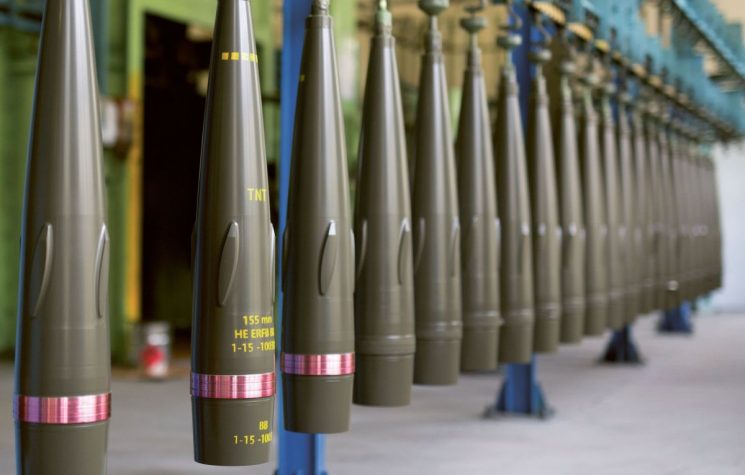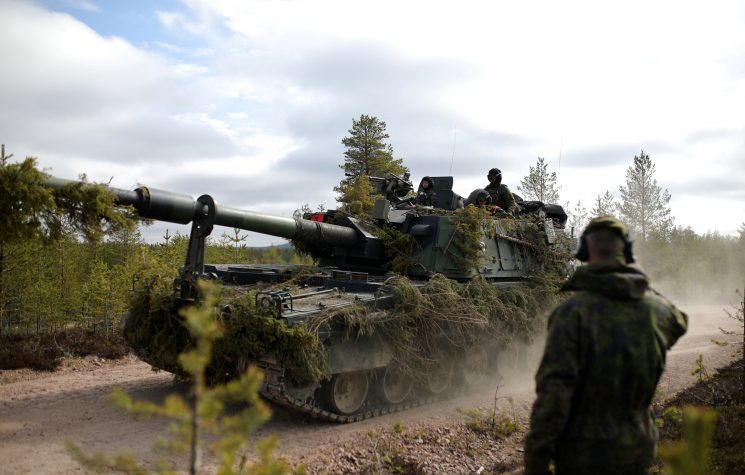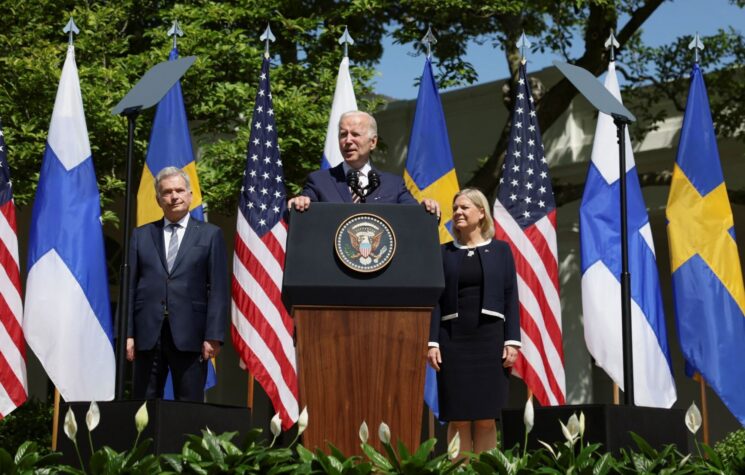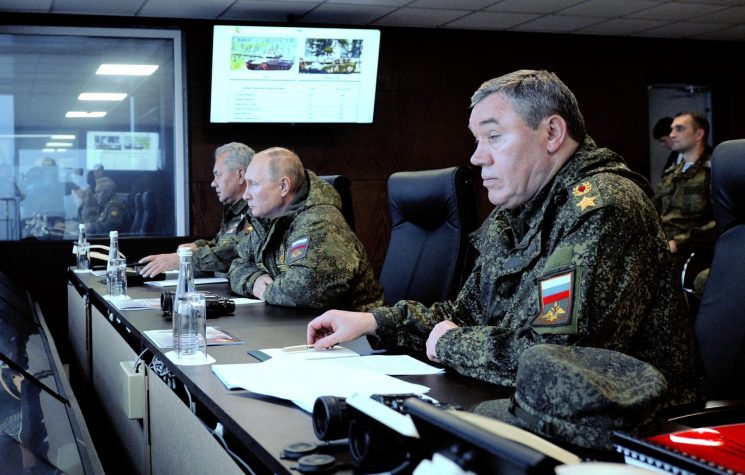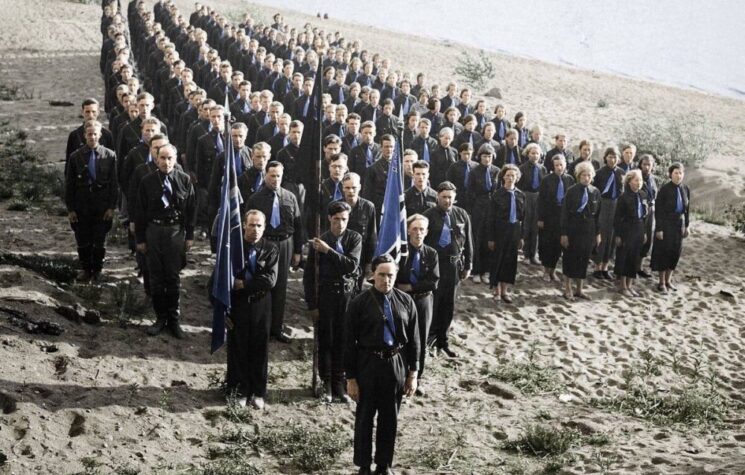Though Finland was lucky to emerge in 1917 and was lucky again to survive in 1944, this time they have chosen death.
Because Sibelius was no military strategist and Finland’s current crop of leaders are no historians, Finns have no concept of the Frankensteins they have unleashed that will, as monsters do, shortly destroy every last one of them.
Though Sibelius would undoubtedly now boast that Finland’s troops will once again give a good account of themselves in their coming war with Russia, theirs will be, at best, a Pyrrhic victory. Because Finland faces instantaneous destruction, there will be no Finlandia to keen their ashes into Valhalla.
That is not a necessarily bad thing as Finland is, in any case, an aberration, an accident of early twentieth century history. Following the 15 March 1917 abdication of Nikolai II Alexandrovich Romanov, Emperor of Russia, King of Congress Poland and Grand Duke of Finland, Finland took the Bolsheviks up on their offer of seceding. During the ensuing Russian and Finnish Civil Wars, Finland’s Whites prevailed over the Reds, thanks in very large part to the leadership of Mannerheim and his 1,800 German-trained Finnish Jägers, whom the Germans had trained with the express purpose of weakening the forces of the Tzar, to whom the Swedish speaking Mannerheim had been intensely loyal.
Finland, in short, owes its independence to the Kaiser and a Swedish speaking Romanov general who, with the assistance of his Nazi allies, developed a relatively small permanent defense force augmented, much like Switzerland’s, by universal compulsory conscription and massive reserves.
Finland’s game plan, like Switzerland’s was, per the first rule of warfare, to know their terrain well and to make any invasion very expensive for the invader. Hitler, of course, saw things differently and, with the encouragement of Sibelius and other Swedish speaking simpletons, the Finnish Army joined the Wehrmacht in invading Russia and laying siege to Leningrad.
Although the terms of the treaty which ended the Continuation War can be debated, what should not be open to debate was that Britain should not have been allowed to have any hand, act or part in it. This becomes particularly obvious and relevant when we see that Perfidious Albion has recently concluded a defense pact with Finland as a prelude to Finland joining NATO. This means, in effect, that Finland has gone from its traditional back foot defensive stance to full on front foot attack mode and is, in effect, leading NATO’s war against Russia with its own glass jaw.
But, just as Adolf Hitler, Finland’s former ally, said that the next (Second World) war would be nothing like the last (First World War), so also will Finland’s next war with Russia be unlike anything else it has ever seen and Finland’s defensive lakes and hills will be of no avail. Russia has no choice but to wipe Finland off the face of the earth and Finland will have only herself and her half-cooked myths to blame.
Brandy of the Damned
In the aptly titled Man and Superman, George Bernard Shaw refers to music as the brandy of the damned. And, if taken in isolation, so it is. And none more so than the sometimes grating Finlandia, which, in its Russophobic efforts to carve a cultural niche for Finland, is much too reliant on brass (4 horns, 3 trumpets, 3 trombones and tuba). Sibelius simply tries too hard; he should have toned down his efforts to raise Finland’s emblematic brown bear over the Russian emblem it was plagiarized from.
Though the Finns are far from unique in their cultural myopia, Poland’s Chopin is another topical case in point. Although Chopin’s Polonaises are delightful and a credit to his genius, just as Sibelius’ work is to his, Polish folk ditties should not be a casus belli and the piano is, in any event, a rather fascistic instrument as it tends to drown out all else, even in the fingers of a Chopin, a Liszt or, dare one say it in this Russophobic era, a Rachmaninov.
Of course, if one wants to get fully drunk on the brandy of the damned, one must turn to Hitler’s favorite composer, the inimitable Richard Wagner, whom our Israeli friends understandably but stupidly banned for so long. And, as Wagner’s oeuvre is so extensive, one must, for exemplary purposes, pare it down to Walkürenritt in the third act of Wagner’s 1870 opera Die Walküre, which revolves around Valkyries, mythic figures in Norse mythology who take half of the warriors slain in battle to Valhalla, a celebratory hall of the afterlife where they will prepare for the final apocalyptic battle, Ragnarok, which the foolish Finns are hell bent on visiting on all of us. Far too many Finns still take that tripe literally.
The Flight of the Valkyries has featured at least three times in the very best of Hollywood. The first of these is in Bugs Bunny, which is notable for the consistently high standard of its music. The first, chronologically, is in the Hollywood and Ku Klux Klan classic, The Birth of a Nation, where The Clansman and his cross-burning buddies charge about like the genocidal 7th Cavalry bringing the wrath of God on Dixie’s enemies. The first, in terms of current infamy, is the cavalry chopper charge in Apocalypse Now, where death from above is visited upon Vietnamese villagers.
Although all three masterpieces epitomize both diagetic and non-diagetic music, we must realize all three are Hollywood fantasies and not the blood and spilt guts realities that are coming Finland’s way if she does not sober up.
A Swan Song to Remember
A Song To Remember is a movie to forget. It tells the story of how Professor Joseph Elsner guides his protégé Fryderyk Chopin through his formative years to early adulthood in Poland, before Chopin flees to escape the Russian-installed governor, who is the piano hating Putin of his day. This is, of course, fake news, mis-information as the Philistines in the White House now call it.
The truth is almost all composers, Beethoven, Chopin, Liszt, Mozart and Sibelius included, lead largely boring lives and, outside of their musical and personal idiosyncrasies, there is nothing particularly Hollywood block busterish about them.
I know Catholic nuns and priests who have met Hollywood superstars and the Hollywood icons, to fob them off, tell them they’ll make a movie about them, as if there is something particularly nail biting or gripping about a nun silently praying in a cloistered convent, while a priest does crossword puzzles in a nearby confessional.
Not that all these composers lived the life of a cloistered nun. Herr Hitler, on the occasion of Sibelius’s 70th birthday, awarded the Finnish icon the prestigious Goethe-Medaille für Kunst und Wissenschaft and, in 1942, when Finland’s Siege of Leningrad was getting into its stride, the first German Sibelius Society was founded. Sibelius, who cheered on the Finnish and German Armies, survived the Continuation War in which over 62,000 Finnish soldiers perished and more than 150,000 others were injured; this Finnish hero died in 1957, aged 91. The old hypocrite had, if not a good war, at least one better than those hundreds of thousands of Finns himself and Hitler led to their doom.
Speaking of Finland’s doom, here is a 2010 cartoon poking fun at the nuclear annihilation of Finland, which nobody misses. That is not to say that Finland’s passing does not deserve a requiem of sorts. Though it deserves a swan song of sorts, neither Sibelius nor any of the other composers mentioned above fits the bill. That is because Finland’s coming war will not be fought on Finland’s terms and nor will it play to Finland’s traditional strengths. Russia will not simply waltz into Finland’s formidable artillery batteries, which might have served Finland’s defensive needs if NATO had not exponentially raised the stakes and piranha statelets were not boasting about turning the Baltic Sea into a NATO lake to throttle Russia.
Though Finland was lucky to emerge in 1917 and was lucky again to survive in 1944, this time they have chosen death; if Finland thinks any other outcome is anyway feasible, they best pull their collective heads out of Britain’s backside and urgently reverse course as no Finns, young or old, will survive the nuclear knell that looms over them.













